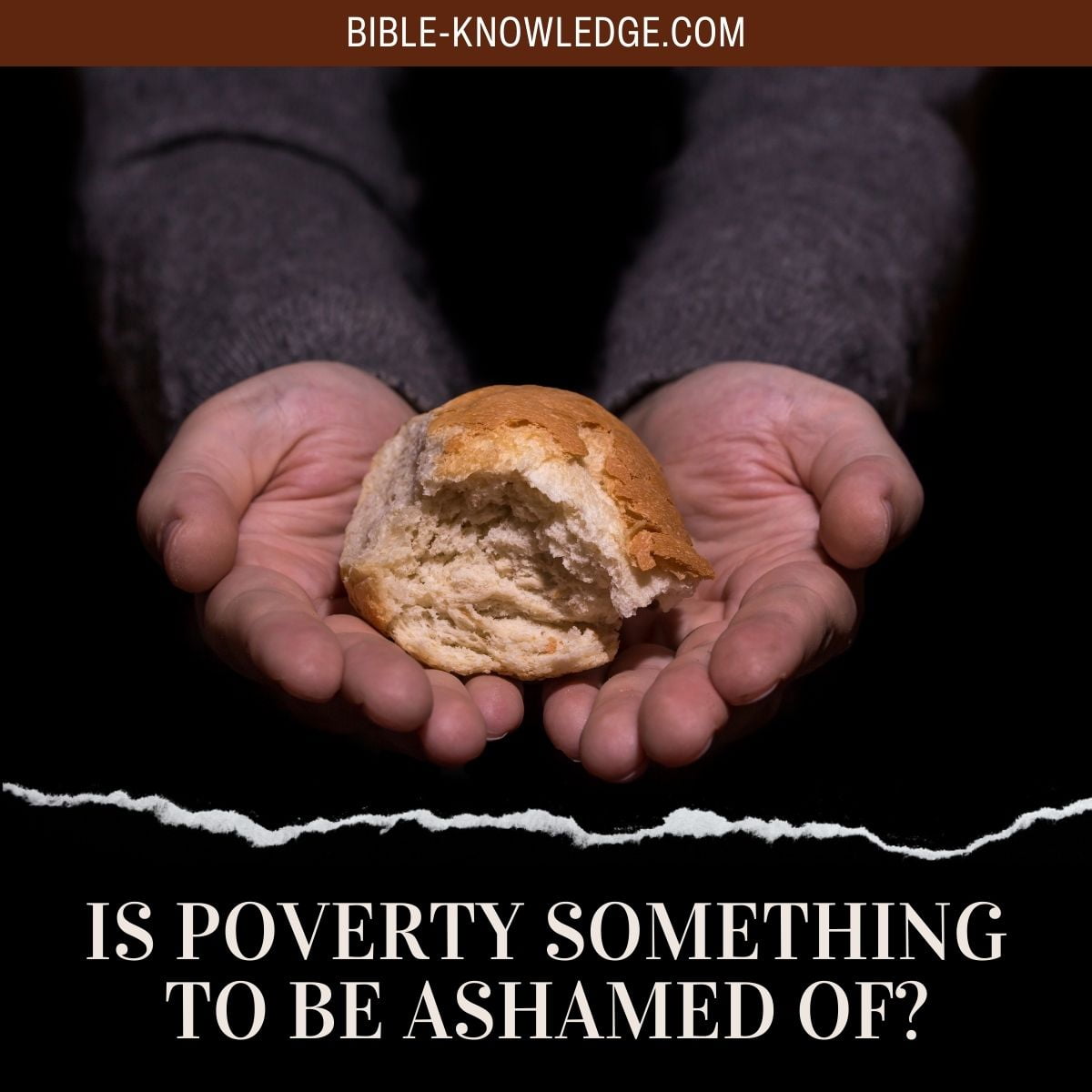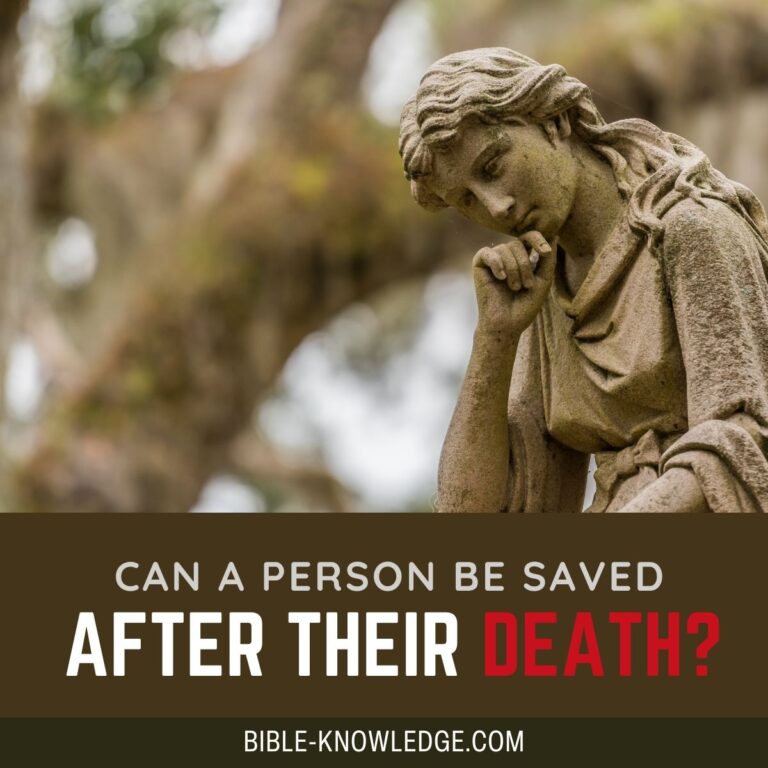Are you ashamed of being poor? Or, although you wouldn’t consider yourself poor, do you struggle with how to view poverty? It’s instinctual not to desire poverty and, from a human standpoint, also understandable. No one willingly signs up on the ‘waiting list’ for ’empty pockets.’ Even the sayings of Agur in the book of Proverbs echo a similar sentiment:
“Remove falsehood and lies far from me;
Proverbs 30:8-9
Give me neither poverty nor riches—
Feed me with the food allotted to me;
Lest I be full and deny You,
And say, “Who is the Lord?”
Or lest I be poor and steal,
And profane the name of my God.”

Yes, we all at least want our basic needs to be met. And, hey, a little extra left over, in most of our minds, wouldn’t be bad either. Agur, unlike too many of us, didn’t want to become rich. He was afraid if he did, his lesser treasures would tragically block out the ultimate treasure of a relationship with his infinitely valuable God. But he also feared poverty and the inherent temptation to get what he needed through thievery instead of trusting God for his needs.
It’s ‘culturally acceptable’ to have enough to meet your basic needs. And the more you have (too often, regardless of how you get it), the more certain groups of people will esteem you. Unlike God, who judges us by the content of our hearts, we’re far too prone to judge the worth of others by how much material ‘value’ they’ve amassed. This can give the wealthy a false sense of safety and security if they’re not careful. It can also blind them to their need for greater pursuits than earthly wealth which can be lost in a moment.
When the poor see the esteem heaped upon the wealthy, it can make them feel bad about themselves if they don’t guard their hearts. If you’re poor, you’re no stranger to seeing this false ‘value’ assigned to the ‘successful’. You’re also no stranger to feeling the sting of rejection from others because of your condition.
Some may view you as unmotivated, lazy, rejected by God or infected with a ‘poverty disease’ they don’t want to catch. People also may avoid you because of the subconscious fear that they’ll feel obligated to help you in some way. It’s also possible others will avoid you because they’d feel guilty if they failed to help you.
What if you find yourself without enough to live on, and you fear the label of poverty would be correctly assigned to you? And what if you feel intense shame because you’re poor? If so, how do you navigate your faith and financial struggles which may sometimes make you feel rejected by both God and people? That’s the complex challenge many people have, no doubt, struggled with since the beginning of time. Thankfully, God has provided some answers to these challenges.
Defining Material Poverty
We won’t go too far into defining material poverty since it can be complex. Different currencies and costs of living among nations, geographical regions and times lend to more or fewer struggles with money.
Still, one thing remains constant throughout history. There are poor people all around us regardless of where we live or what era. And at times, we’re also part of this group. For the sake of this article, we’ll define poverty as not being able to pay for your basic needs based on the amount of money you, individually or as a family, bring in.
Scripturally speaking, there are times we should be ashamed of poverty. It’s equally true there are times we shouldn’t. Let’s start with the times we should be ashamed of not having enough to live on and work out from there.
When Poverty is Something to Be Ashamed of
We all have the responsibility to do our best to provide for our basic needs and those of our families. The only real reason for shameful poverty given in the Bible is when we willfully and carelessly neglect this God-given task. A well-known example of this is found in the book of Proverbs:
“I went by the field of the lazy man,
Proverbs 24:30-34
And by the vineyard of the man devoid of understanding;
And there it was, all overgrown with thorns;
Its surface was covered with nettles;
Its stone wall was broken down.
When I saw it, I considered it well;
I looked on it and received instruction:
A little sleep, a little slumber,
A little folding of the hands to rest;
So shall your poverty come like a prowler,
And your need like an armed man.”
This passage, arguably more than any other, gives vivid imagery of what shameful poverty looks like and its swift consequences. In this case, poverty results from foolishness, laziness and neglect rather than being industrious but still struggling. Another common passage warning about the dangers of not providing for one’s family was penned by the Apostle Paul:
“For you yourselves know how you ought to follow us, for we were not disorderly among you; nor did we eat anyone’s bread free of charge, but worked with labor and toil night and day, that we might not be a burden to any of you, not because we do not have authority, but to make ourselves an example of how you should follow us.
For even when we were with you, we commanded you this: If anyone will not work, neither shall he eat. For we hear that there are some who walk among you in a disorderly manner, not working at all, but are busybodies. Now those who are such we command and exhort through our Lord Jesus Christ that they work in quietness and eat their own bread.”
2 Thessalonians 3:7-12
Notice Paul didn’t judge others who were working but still poor, saying they weren’t working hard enough or enough hours. Instead, he was a big advocate of helping the poor. Although Paul worked night and day instead of having believers pay for his ministry, he was also single.
Those with a spouse and children require a more balanced life than that to have adequate time to raise godly children (the primary reason God exhorts spouses to be faithful in their marriage). And raising children is work in itself, although it isn’t work that leads to material profit.
More than anything, Paul spoke against those who weren’t doing any work. He also used the word ‘busybodies’ to describe these individuals. First, they weren’t working at all. Secondly, they were prying into the personal matters of others where they weren’t needed. This appears to imply things like gossip and giving unwanted advice were involved as they were in a similar exhortation against such practices found in I Timothy. In other words, these people in the church were causing relational problems among those who were working. They were making life even harder for the industrious.
Although work is cursed because of sin, it can still be rewarding once you find a good career fit. Besides providing for our needs, it also keeps us from digressing into foolish choices because we have too much available time. It also can make us feel useful and purposeful. In a sense, we don’t have the time to ‘stick our nose where it isn’t wanted’ when we’re providing for ourselves and our families. Instead, we have our own useful tasks that need to be done.
A passage with striking similarities to the one found in 2 Thessalonians, as mentioned earlier, can be found in I Timothy. Here’s a key excerpt:
“But if anyone does not provide for his own, and especially for those of his household, he has denied the faith and is worse than an unbeliever.”
I Timothy 5:8
This is a sobering verse for believers willfully neglecting to provide for the basic needs of their families. Being called ‘worse than an unbeliever’ is not what God’s children want to hear. Essentially, what this verse says is that even pagans (those who do not yet have a relationship with God) regularly provide for their families. And if that’s the case, how much more should God’s children do the same!
Although this passage, more specifically, admonishes grown children to care for their aging parents (especially widows) before seeking help from the church, it certainly also applies to supporting one’s primary family unit. Ultimately, how much we’re able to provide will differ from person to person. For that reason, it’s vital that we regularly interact with God to gain the wisdom needed to determine if we’re doing enough to provide or going in the opposite extreme of doing too much and plunging into the love of money and idolatry.
Why We Should Be Careful About Judging Others for Their Poverty
Often, individuals will lump all the poor into one group—those who are poor because of laziness. In reality, most are poor even though they work hard. Yes, a person may rise from poverty and experience good pay, but for every ‘winner’, there is a ‘loser’. In other words, in any given economy (even in the best ones), there are only so many well-paying jobs to go around at one time. That means, as Jesus said, “We will always have the poor among us.”
The desire to provide for oneself and one’s family is a strong instinct, just like the basic desire for survival. At times, both can feel equally urgent. The reality is that most individuals, even in poverty, obey this basic desire or instinct. They want to provide for their families even if it’s tough to do so.
Because of this, we need to be careful not to judge others for being poor simply because we feel ‘they should be working harder’. There are many factors involved in a person’s life that we often can’t see. For instance, a person’s poverty could stem from a lack of access to educational resources, mental or physical illness, job loss, a family tragedy that has disrupted work, inadequate pay, difficulty finding work after incarceration, addiction, having a single-parent family and many other factors. There are typically a variety of factors present at once.
We’ll be far less judgmental once we realize poverty is complex. After all, no one sets out to be destitute. It’s just something that happens. Most often, the response of those who aren’t poor should be one of compassion and generosity. Why? Because, much of the time, poverty isn’t something to be ashamed of. Let’s look at the scriptures to understand why.
When Poverty Isn’t Something to Be Ashamed Of
As shared earlier, those who are poor generally find themselves there despite their hard work. This is what today’s terminology of the ‘working poor’ refers to. Sadly, another term is becoming well-known too. That is, the ‘homeless poor’. Some, although they work diligently, still struggle to pay their bills. In certain scenarios, they can’t even afford adequate housing and become homeless while continuing to work a dead-end or exploitative job.
Poverty can become a vicious cycle. The deeper one falls into it, the harder it can be to get out. The poor are not unintelligent as some wrongly assume. It’s just that much of their mental and emotional energy is depleted trying to figure out solutions to problems that those who aren’t in poverty don’t have to worry about.
Challenges like affordable housing, paying bills and looking for a better-paying career while struggling through a job with inadequate pay are a few of the many struggles the poor face. And these obstacles can regularly feel impossible to overcome. The poor can become like a computer with too many programs running at once. Inevitably, that computer (person) will struggle to function well because there are too many difficult tasks to juggle all at once.
God isn’t pleased by the ill-treatment of the poor. He knows that our value doesn’t increase with our bank account, although sinful people are regularly tempted to believe such myths. Mistreatment of the poor can happen in several ways whether through offering inadequate pay or by directly making fun of them or treating them as inferior.
“He who mocks the poor reproaches his Maker;
Proverbs 17:5
He who is glad at calamity will not go unpunished.”
Why does God take the offense of mocking the poor so personally? First, it’s because, just like the wealthy, the poor were made in his image. Secondly, God has allowed some to be poor. For that reason, they shouldn’t be blamed for their state any more than for the color of their skin, eyes or hair. The scriptures even go as far as to say that God has chosen some to be materially poor in this life but rich in spiritual things.
The book of James gives an account where the rich believers were given better places to sit in their religious meetings than the poor were. Here was James’ response to these evil actions:
“Listen, my beloved brethren: Has God not chosen the poor of this world to be rich in faith and heirs of the kingdom that He promised to those who love Him? But you have dishonored the poor man.”
James 2:5-6
Showing special favor to the rich over the poor is another way the poor are mocked. And, sadly, this even takes place in the church. Sometimes, the ‘more generous’ givers are allowed to wield unhealthy power in the church because of their wealth. Some churches may be afraid to lose these ‘key members’ because of their financial contributions. The result can be that they let certain wealthy members lead in a carnal manner rather than a Spirit-led one.
Some aspects of our lives we view as negative may be viewed quite differently by God. He allows some of his children to go through poverty to deepen their faith in ways that wealth often makes difficult to achieve. The natural human tendency is for poverty to lead to all types of evil because of the feelings of hopelessness it can stir up. But hopelessness was never God’s will for his children who live in poverty. Some experiences strengthened their character as a result of poverty.
In Victor Hugo’s sprawling novel, “Les Miserables”, he had much to say about poverty. Specifically, he shared that it could have either a refining effect on one’s character or greatly diminish it. Here’s a famous excerpt:
“Wonderful and terrible trial, from which the feeble come out infamous, from which the strong come out sublime. Crucible into which destiny casts a man whenever she desires a scoundrel or a demigod.”
God’s desire for his children in poverty, just like for all of his children, is for them to overcome evil with good by his power (it takes more than self-will). For them to continually grow in their faith. Also, He desires that his children come to Him to find their true worth rather than going to the world for its fickle opinion.
The kind of people wealth attracts often leads to conditional love and fair-weather friends anyway. God, on the other hand, loves people for who they are rather than what they have. Everything ultimately belongs to Him anyway so that shouldn’t be too surprising. And God is incredibly fond of all his children, regardless of their bank accounts.
Is It Bad, Then, to Try to Get Out of Poverty?
Well then, can someone God has chosen to be materially poor in this life change God’s script for them? In other words, can they say to God, “Enough of this poverty thing, God. I’m doing things my way?”
Yes, they can. They may even become a millionaire if they’re determined enough. But they’ll almost certainly lose more than they’ll gain in the process. Too often, wealth accumulation comes at the expense of things that are of greater value.
“For the love of money is the root of all evil: which while some coveted after, they have erred from the faith and pierced themselves through with many sorrows.”
I Timothy 6:10
What are a few examples of things that are more valuable than money? Here are some that immediately come to mind:
- Your reputation
- Your health
- Your marriage
- Your children, other family and friends
- Your spiritual family
- Fulfilling your life purpose
- Salvation
- Your relationship with God
The question to ask is, “Can I accomplish wealth accumulation without giving up more important things than money?” For those God has chosen to be poor in this world, the answer will consistently be ‘no’. For instance, how much of a toll will wealth-building take on your health, family and especially your relationship with God? The important thing is to make sure your pursuit of money doesn’t turn into idolatry.
Also, keep in mind that wealth comes and goes. Someone who’s wealthy later in life may start out quite poor and vice versa. It may be God’s will for you to be poor at one point in your life but not in another. The key is that, like Paul, we learn contentment in all circumstances.
“Not that I speak in regard to need, for I have learned in whatever state I am, to be content: I know how to be abased, and I know how to abound. Everywhere and in all things I have learned both to be full and to be hungry, both to abound and to suffer need. I can do all things through Christ who strengthens me.”
Philippians 4:11-13
Even for those who remain in poverty their entire lives, they’ll still experience varying degrees of it. Wherever we find ourselves, the challenge will be to focus on the true spiritual riches Jesus spoke of. True wealth lasts for eternity while earthly wealth is very short-lived and easily lost. Giving up Heavenly riches for material gain is always a terrible trade.
Remember, the Greatest Poverty Is Poverty of The Soul
The raw truth is that a lack of material wealth is not what makes you the most destitute. Rather, it comes from the poverty of the soul. As the scriptures warn, it’s completely possible to amass spectacular wealth only to die without Christ and forfeit your soul. If that happens to someone, none of their wealth will be able to save them from the terrible day of judgment that awaits.
In his letter to the church of Laodicea, Jesus had some shocking words for those who had material wealth but little else. They thought they possessed everything they needed because of their money. But Jesus told them they were actually destitute and in need of serious help:
“Because you say, ‘I am rich, have become wealthy, and have need of nothing’—and do not know that you are wretched, miserable, poor, blind, and naked—I counsel you to buy from Me gold refined in the fire, that you may be rich; and white garments, that you may be clothed, that the shame of your nakedness may not be revealed; and anoint your eyes with eye salve, that you may see.”
Revelation 3:17-18
Earthly wealth can give a false sense of being ‘OK’ and better than you are. This is obviously true of its power to grant basic needs and extravagant pleasures. But it’s also too often used to unfairly motivate the legal system or to get what an individual wants through underhanded ways because of the status and power attached to it. Certainly, not all wealthy people are characterized by these practices, but it can be a big temptation for some.
Jesus is the ultimate treasure. The poorest person in the world (materially speaking) is richer than the richest one if he or she has Christ. The only hope for the poverty of the soul is salvation through Jesus Christ. That is the poverty we should all be most concerned about.
At death, we leave all we own. The only riches we take with us are the ones we gain through Christ’s salvation. Everything else is lost for good. That’s why each of us addressing the poverty of our souls is so critical. In the end, we’ll all be either eternally rich or eternally poor. There is no ‘middle class’ in the afterlife.
If Poverty’s A Shameful Thing, We Should Be Very Ashamed of Jesus
By the world’s estimate, Jesus lived in poverty. The scriptures say He had no place to lay his head. He didn’t own a house or land. The scriptures say that people hid their faces from Him. This was especially true when his people ultimately crucified Him.
They wanted Jesus to bring political peace and financial prosperity to earth. Instead, Jesus first wanted to bring peace and prosperity to their hearts. In that respect, Jesus was a huge disappointment to the Jews. Most failed to understand why Jesus didn’t come to bring earthly financial prosperity.
He, instead, came to make us far richer than that in our spirits and throughout eternity. There would come a time for political peace and prosperity, but that wouldn’t happen until the New Heaven and New Earth. Sinful humanity was too short-sighted to see that fact.
In a sense, being ashamed of the materially poor is to be ashamed of Jesus. After all, Jesus was materially poor and, as such, he takes slights to the poor seriously.
“For whoever is ashamed of Me and My words in this adulterous and sinful generation, of him the Son of Man also will be ashamed when He comes in the glory of His Father with the holy angels.”
Mark 8:38
Jesus shares in the gospels that those who help “the least of these” will be rewarded. Jesus views those who neglect the needy as personally neglecting Him. Oppositely, Jesus considers those who help the poor to have personally “clothed and fed” Him.
“Then the righteous will answer Him, saying, ‘Lord, when did we see You hungry and feed You, or thirsty and give You drink? When did we see You a stranger and take You in, or naked and clothe You? Or when did we see You sick, or in prison, and come to You?’ And the King will answer and say to them, ‘Assuredly, I say to you, inasmuch as you did it to one of the least of these My brethren, you did it to Me.’”
Matthew 25:37-40
If this is the way Jesus views poverty and financial struggle, surely, in most cases, poverty by itself is nothing to be ashamed of. Jesus identifies with your struggle because He struggled in this way but, unlike us, came out perfectly victorious and sinless.
The Final End of Poverty
Are you poor? If so, you have no reason to be perplexed or ashamed. Our risen Savior may have been materially poor on Earth. But He’s now glorified and his wealth has no end. And, unlike earthly wealth, his Kingdom will last forever.
Jesus’ Heavenly inheritance makes the most extravagant earthly one look like a joke in comparison. And as God’s child, you also share in that rich inheritance. What does that mean for Christ-followers? That means regardless of your financial status on earth, you’ll be wealthy beyond comparison in Heaven.
Sure, there’ll be gold and jewels on the New Earth, but that’ll be the least of your concerns. Of what value are those in comparison to the Maker of gold and jewels? You’ll be perfectly healed in a completely restored relationship with God and people. You’ll be entirely happy, comforted and purposeful too.
Do you currently feel rejected by people and maybe even God because of your poverty? As a child of God, keep faith in the end goal because it gets much better. As God’s child, you’re simply waiting for your inheritance to be fulfilled. And on the day it is, poverty will never visit you again for even the briefest moment through all eternity. God’s miraculous love through the salvation of Jesus will see to it!




